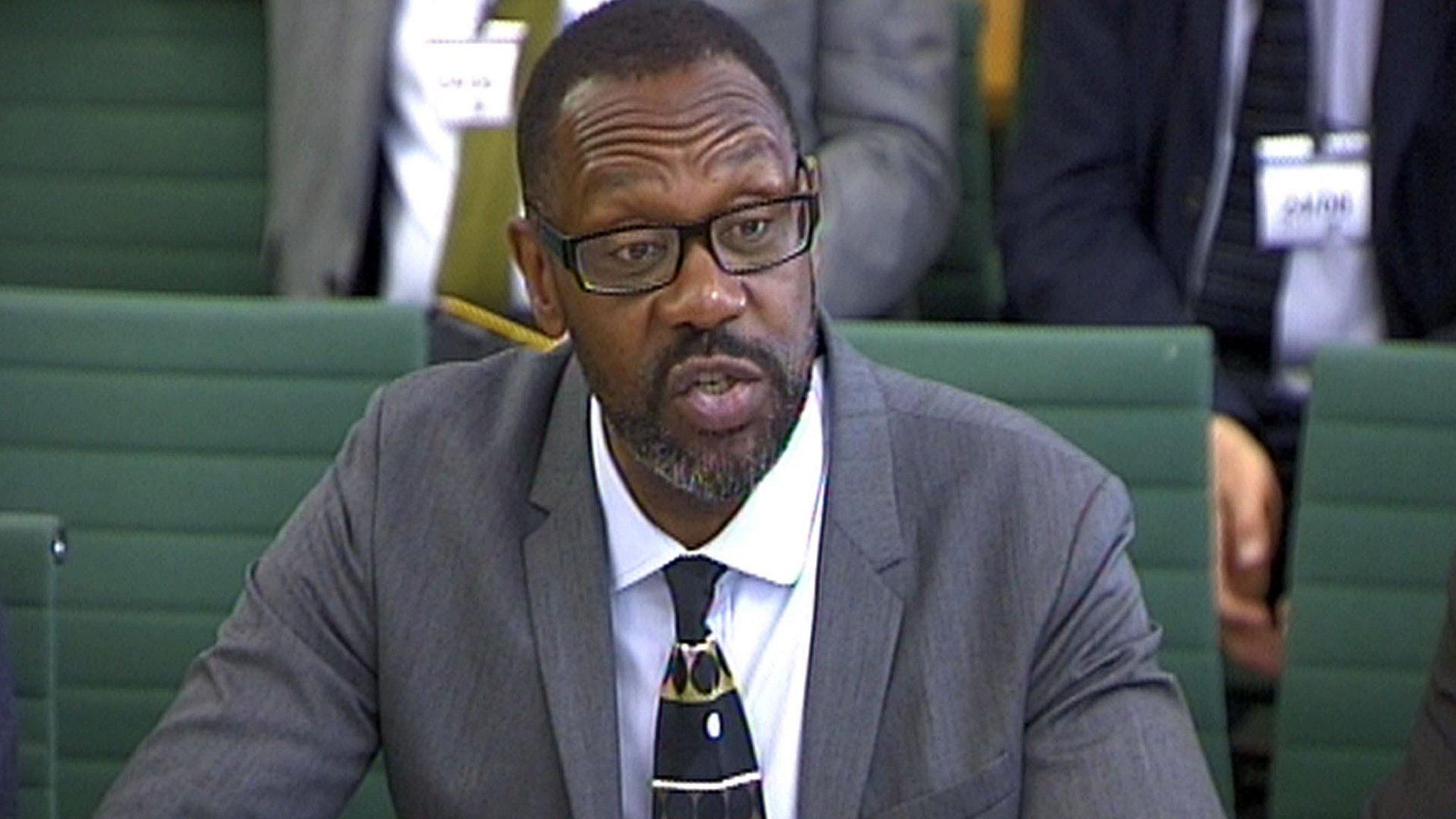Pieces of Sir Lenny Henry
- Published
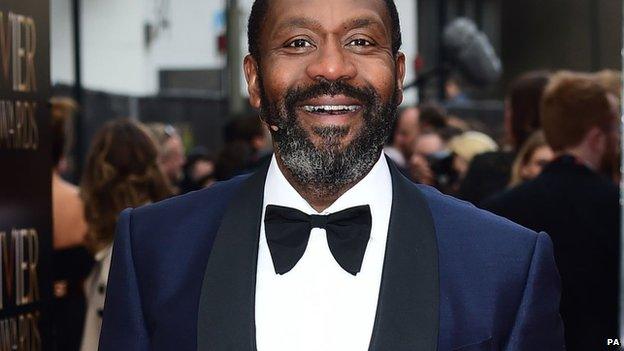
There are few areas of life in which comic and actor Lenny Henry has not made an impact - working in theatre, television, film and charity.
The star said he was "very chuffed" about his knighthood, which was first reported in the press last weekend.
Over the course of five-decade career, he has survived occasional criticism without forfeiting the affection of the British public.
Born to Jamaican parents on 29 August 1958 in the West Midlands town of Dudley, Lenworth George Henry shot to fame in 1975 aged just 17 after appearing on the TV talent show New Faces.
His winning performance led to the comedy series The Fosters and the anarchic children's show Tiswas, where he started to forge his own energetic and spontaneous comedy style.
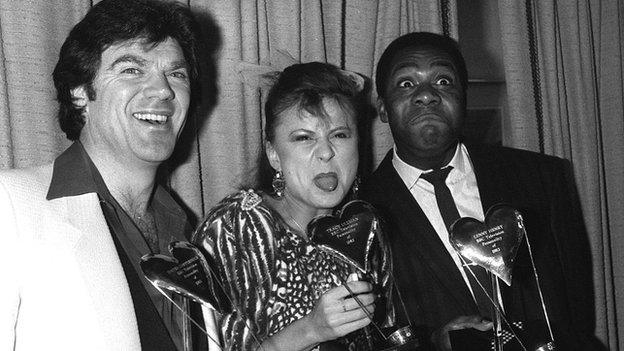
He joined Three of A Kind after leaving the Black and White Minstrel Show
However, his next career move was to haunt him for many years.
He joined the Black and White Minstrel Show, in which "blacked up" white entertainers sang songs from the American South - a concept which has since been much ridiculed and reviled.
The comedian spent five years touring with the show, which he has since called a "grotesque parody of black people".
"I sort of wish it had never happened, but I don't regret that I did it," he told The Telegraph last year, external. "Although it was a weird, reprehensible position to be in, I was working in huge venues and learning how to work a crowd."
His escape route was the BBC sketch series Three of a Kind, which also starred Tracey Ullman and David Copperfield.
First broadcast in 1981, it used state-of-the-art video effects and Ceefax-style graphics to deliver a fast-paced, gag-filled show - although many of its idiosyncrasies seem dated today.
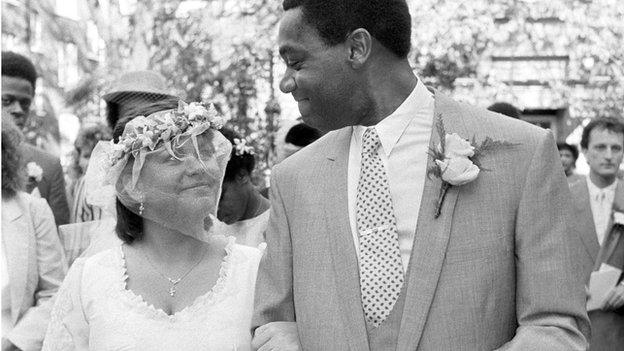
Sir Lenny was married to comedian Dawn French for 25 years
At the same time, the alternative comedy scene was heating up, and through TV producer Paul Jackson, Henry met the cutting-edge comedians of the Comic Strip team - one of whom was Dawn French.
At first, French was critical of the comedian's manner and the stand-up routines he still used to make a living, which had evolved in northern working men's clubs.
He would wipe sweat from his forehead and say it tasted like chocolate - or threaten to move next door to hecklers if they did not shut up.
But, despite their first impressions, the couple warmed to each other, eventually marrying in 1984 at St Paul's Church in London's Covent Garden.
At the same time, Henry's political views began to mature. He refused to judge a Miss Blackpool beauty contest in 1984, saying it was degrading to women.
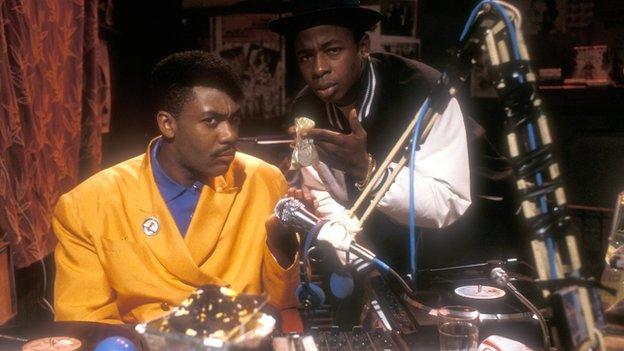
Sir Lenny's comic creations include pirate radio DJ Delbert Wilkins
His TV career progressed fast with BBC One's The Lenny Henry Show, and later The Delbert Wilkins Show.
As a charity fundraiser, he also co-founded Comic Relief in 1985, which has raised more than £1bn over the past three decades.
1993's Chef! was another successful BBC One vehicle - but behind the scenes Henry was trying to nurture new black comedy talent, helping to set up BBC Two's The Real McCoy sketch show.
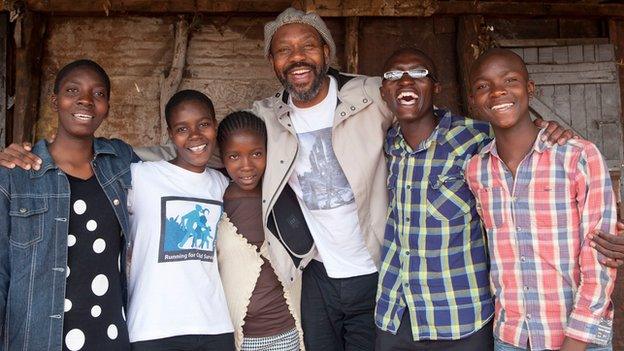
Sir Lenny co-founded the Comic Relief charity with writer Richard Curtis
He also began to take on more serious roles.
Hope and Glory, in which Henry played an embattled head teacher, first aired on BBC One in 1999 while other projects included White Goods, Alive And Kicking and The Man.
He also co-created, with Neil Gaiman, and produced the 1996 BBC drama serial Neverwhere.
In 2009, he turned his attention to the stage, appearing in the title role of Northern Broadsides production of Othello at the West Yorkshire Playhouse in Leeds.
It transferred to London and earned Sir Lenny the title of best newcomer at the London Evening Standard theatre awards.
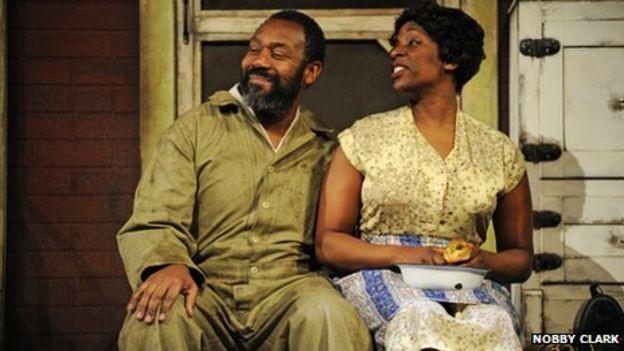
Sir Lenny won a best actor award for Fences
In 2010, the star's 25-year marriage ended in divorce. Soon after, his older brother Hylton lost his wife and two children, to cancer and TB.
Sir Lenny said the "cataclysmic" deaths helped put his own life in perspective and reassert his love for his family.
He threw himself into work and, in 2011, followed up his Othello role with a debut at the Royal National Theatre in London, playing Antipholus of Ephesus in Shakespeare's The Comedy of Errors.
His reputation as a serious actor was cemented in 2014, with a best actor title at the Critics' Circle Theatre Awards for his lead performance in Fences.
In recent years, Sir Lenny has become an outspoken critic of British television's lack of ethnic diversity in its programming.
"I'm used to being the only black person wherever I go," he said. "There was never a black or Asian director when I went to the BBC. Eventually I thought 'where are they all?' I spent a lot of time on my own.
"Things have changed a bit, but rarely at the BBC do I meet anyone of colour in a position of power."
During a speech at Bafta in March 2014, he called the lack of minorities "appalling," and he has continued to raise the issue publicly.
On learning of his knighthood, the star said his "mum would have absolutely been chuffed" - and admitted to being bowled over himself.
"It was lovely, it was a lovely feeling, it was like being filled with lemonade for 10 or 15 minutes," he told BBC Radio 2.
- Published9 June 2015
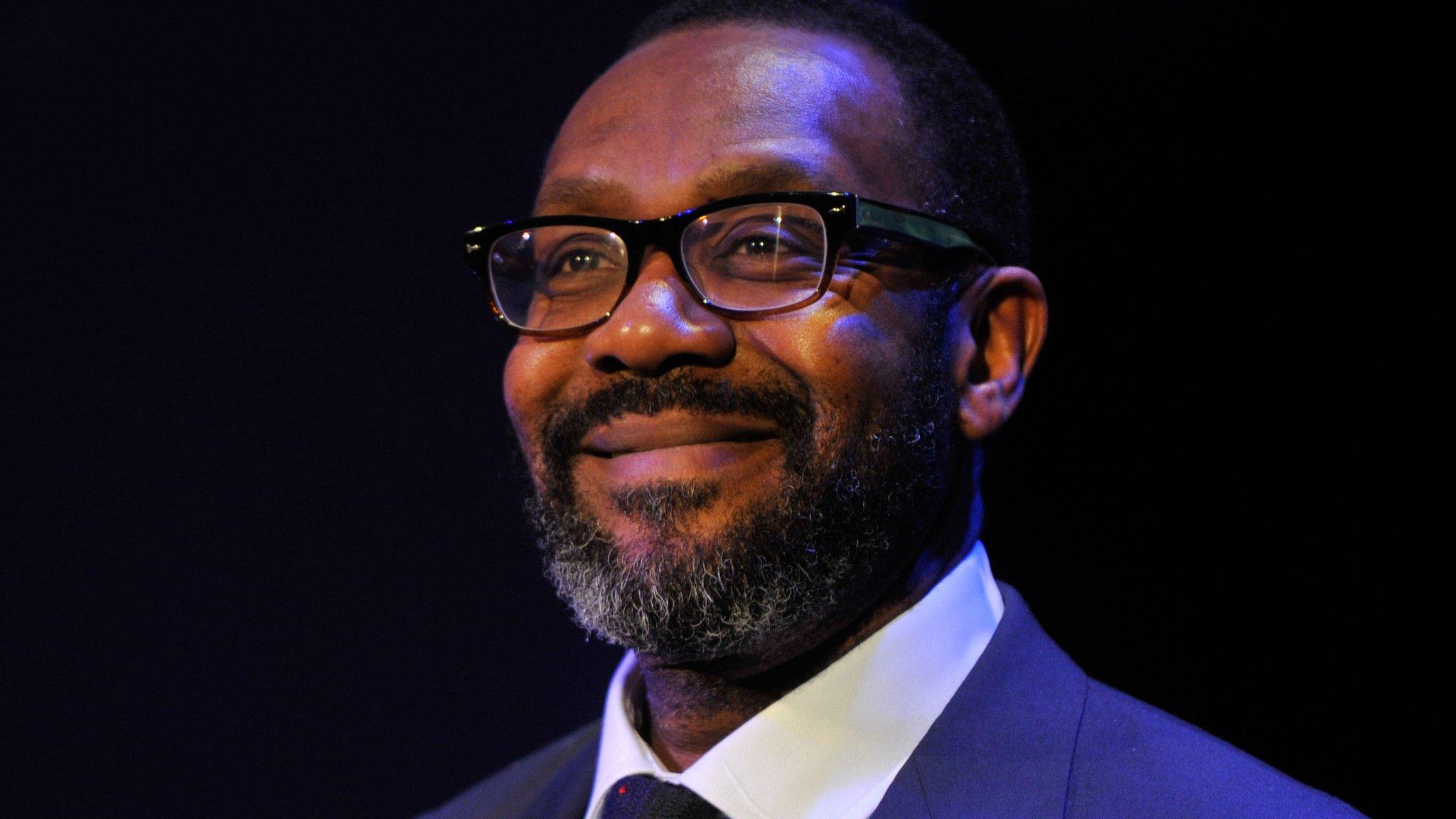
- Published13 March 2015
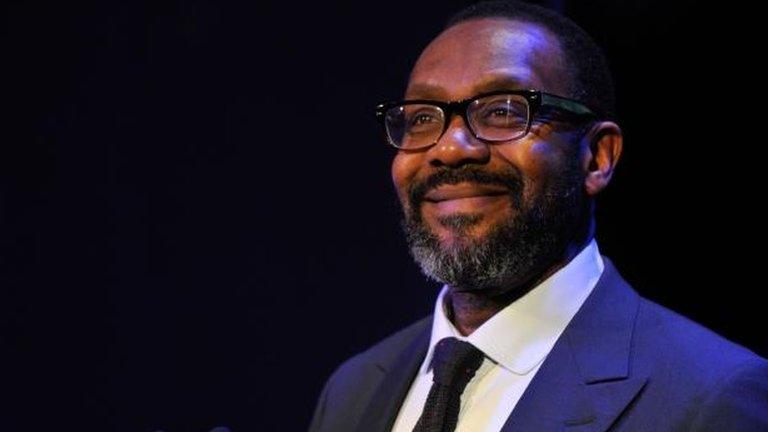
- Published24 June 2014
